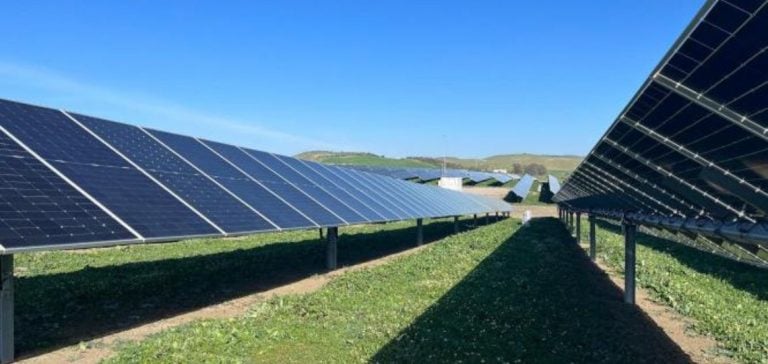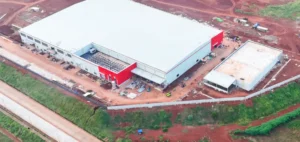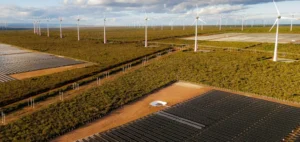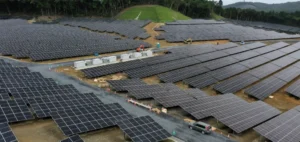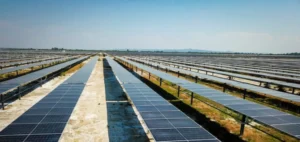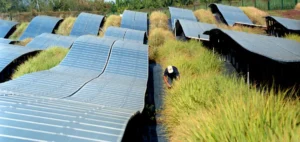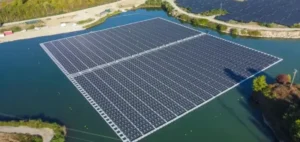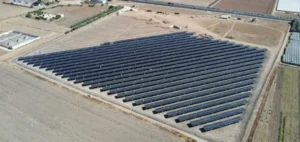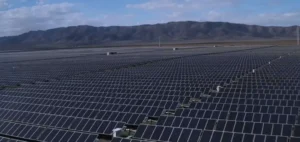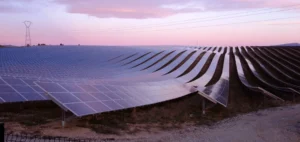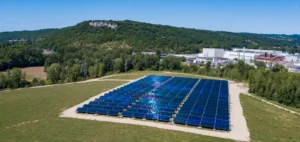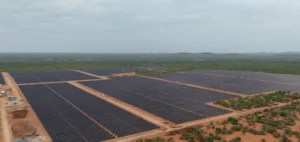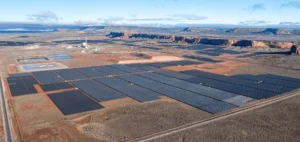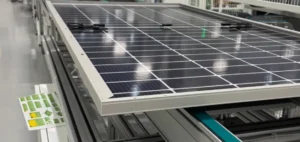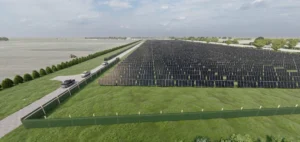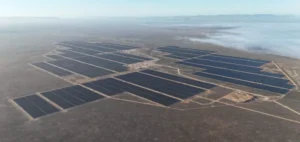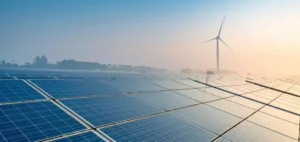The European Investment Bank (EIB) has signed a €166 million loan with BNZ, an independent power producer, to finance the construction of 17 solar photovoltaic power plants in Southern Europe.
This financing represents the first tranche of a total €500 million approved by the EIB to support the installation of 1.7 GW of solar capacity in this region by 2026.
The aim is to accelerate the European Union’s energy transition while strengthening its energy security.
These plants, with a combined capacity of over 700 MW, will generate renewable energy equivalent to the average annual consumption of more than 390,000 households.
The project is supported by the InvestEU program, which mobilizes public and private capital to achieve the EU’s climate and energy objectives.
These investments aim to offset the import of fossil fuels while increasing local renewable energy production.
A strategic location for Southern Europe
The plants will be located mainly in so-called cohesion regions, where per capita income is below the European average.
As well as supporting economic growth in these areas, the project will contribute to the EU’s decarbonization efforts.
The regions benefiting from the new solar infrastructure will not only benefit from sustainable energy development, but also from the strengthening of local infrastructure, which is essential to their modernization and the reduction of regional disparities.
This financing reinforces the role of the EIB in supporting strategic energy infrastructures.
The EIB, often referred to as the “Climate Bank”, finances projects aligned with the objectives of the European Green Deal, with a focus on accelerating the energy transitions of member states.
BNZ: a key player in solar production
BNZ, owned by Nuveen Infrastructure, is an independent player in the renewable energy sector.
It specializes in the development, construction and operation of solar power plants.
The EIB-financed project is part of a long-term strategy to increase solar energy production in Southern Europe.
The photovoltaic power plants being developed by BNZ represent a significant step forward for these countries, boosting their production capacity while diversifying their energy mix.
The overall objective of this financing is to achieve greater energy autonomy for the European Union.
By reducing dependence on imported gas and oil, these solar installations contribute directly to the strategic objectives set by the European Commission as part of the REPowerEU plan.
This plan aims to diversify sources of energy supply and reduce Europe’s vulnerability to fluctuations in the fossil fuel market.
A stronger commitment to decarbonization
The EIB’s support is part of a wider drive to achieve the EU’s climate objectives, notably carbon neutrality by 2050.
The project is also in line with the European Green Deal and the REPowerEU plan, which encourages the development of energy infrastructures based on renewable technologies.
By mobilizing public and private funding, InvestEU aims to catalyze massive investment in the EU’s strategic sectors, including green energy, energy production and efficiency.
By 2023, the EIB has already committed more than €21 billion to energy security projects, mainly focused on renewable energies, electricity grid infrastructure and storage systems.
With these new photovoltaic power plants, the aim is to strengthen the resilience of the European energy system in the face of global energy crises, while actively participating in the gradual decarbonization of European economies.
Sustainable investment for a resilient Europe
The ISB’s financial commitment of €166 million to BNZ is just one part of a wider effort to achieve the European Union’s strategic objectives.
The 17 solar power plants are just one part of a wider set of projects aimed at transforming Europe’s energy infrastructure and ensuring a smooth energy transition.
Between now and 2027, the EIB plans to mobilize over €150 billion to finance zero-carbon technologies and support the extraction, processing and recycling of critical raw materials.
This commitment underlines EIB’s central role in financing the energy transition and reducing Europe’s dependence on imported fossil fuels.
The investment model deployed via InvestEU combines public and private capital in a synergy that accelerates efforts to modernize the continent’s energy infrastructure.
With this project, the EIB is consolidating its role in implementing European policies while supporting sustainable economic growth, particularly in the least economically developed regions.
Europe’s energy security and self-sufficiency depend on these ongoing efforts to increase renewable energy production while diversifying sources of supply.


